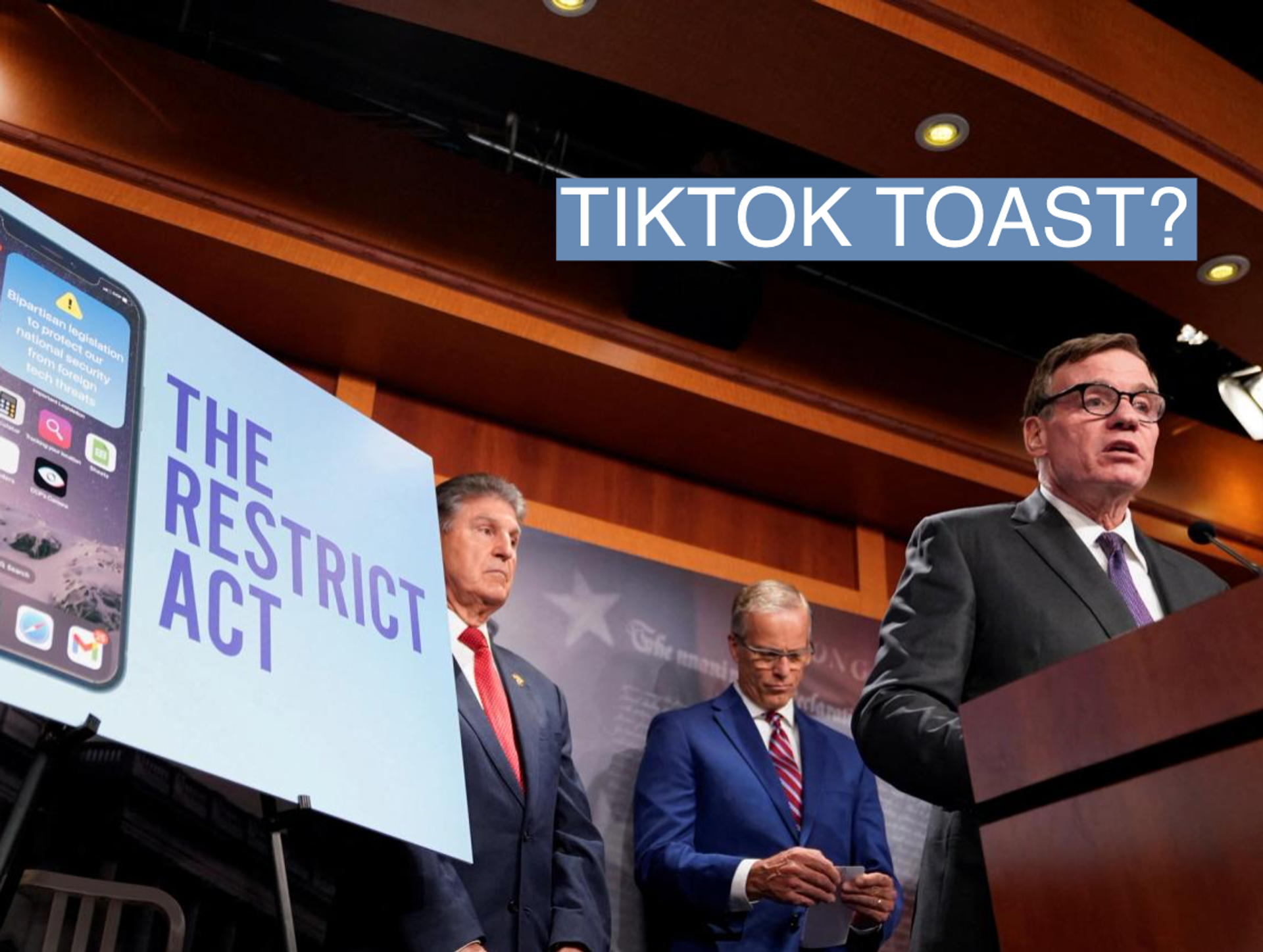The News
The White House is backing a new bill that could allow it to ban TikTok, lending by far the most momentum yet to efforts to crack down on the China-based social media phenomenon.
Know More
The legislation has strong bipartisan support: Twelve senators, including six Democrats and six Republicans, unveiled the measure at a press conference on Tuesday. They included Sens. Mark Warner, the chair of the Senate Intelligence Committee, and South Dakota Sen. John Thune, the chamber’s No. 2 GOP leader.
The bill, titled the RESTRICT Act, would not ban any apps outright. Instead, it would give the Commerce Department new power to review tech products for national security risks if they are sold or run by companies connected to officially designated foreign adversaries — including China, Russia, Iran, North Korea, Cuba, or Venezuela.
It would give the Biden administration a variety of tools to respond if officials conclude that a product poses a threat, including forcing foreign-owned companies to divest their U.S. operations or imposing a full-fledged ban. It applies to a broad range of technologies, including artificial intelligence and quantum computing.
National security adviser Jake Sullivan said in a statement that the White House — which had stayed quiet on previous bills — would work with its sponsors “and urge Congress to act quickly to send it to the President’s desk.”
The RESTRICT Act, which doesn’t mention TikTok specifically, goes less far than some similar legislation, like a Republican-backed House bill that Democrats voted against in committee last week, which would have required the administration to impose sanctions on certain companies. Nonetheless, Thune made clear it could lead to TikTok being banned.
Warner told reporters that he believes “having a rules-based process that identifies types of technologies” would also hold up better in court. That could help it overcome challenges posed by the so-called Berman amendments, which limit the president’s ability to ban “informational materials” from foreign countries.
The Biden administration has been conducting its own review of TikTok through the Committee on Foreign Investment in the United States, but that effort has appeared to stall recently. The talks were aimed at finding a way for TikTok to continue operating within the U.S. while finding a way to prevent private U.S. user data from being accessed by China.
TikTok has sought to assure lawmakers that its data is secure and that its parent company ByteDance is not controlled by the Chinese government.
“The Biden Administration does not need additional authority from Congress to address national security concerns about TikTok: it can approve the deal negotiated with CFIUS over two years that it has spent the last six months reviewing,” TikTok spokeswoman Brooke Oberwetter said in a statement.
TikTok’s popularity among Americans could still prove a hurdle to a ban. Some Democrats in particular could be sensitive to signing onto legislation because much of the party’s younger base is on TikTok. Even Commerce Secretary Gina Raimondo has recently cautioned against banning it, citing both free speech and political concerns.
Asked about the potential for political blowback, Democratic pollster Celinda Lake told Semafor she didn’t think there would be any if a ban were enacted. “Young people are very aware of the problems and the abuse,” Lake said. “They worry about younger brothers and sisters.”
